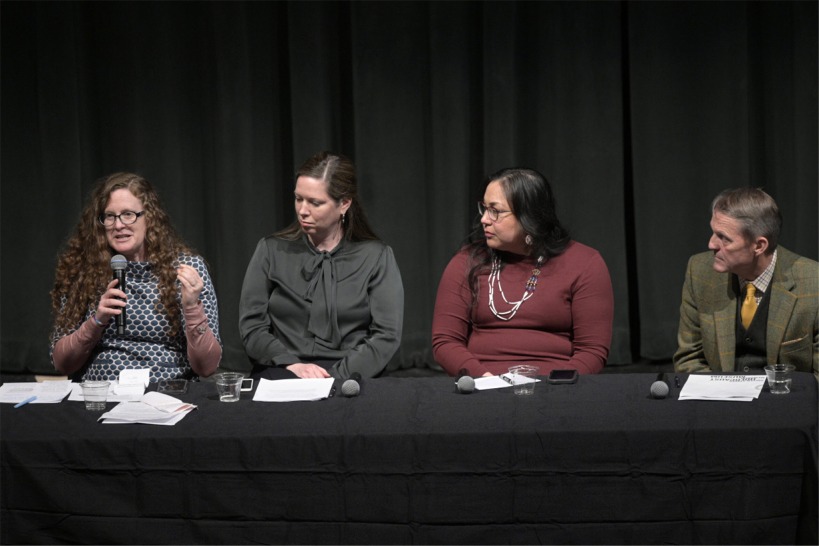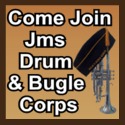Jamestown (UJ) – The University of Jamestown (UJ) recently hosted a two-day program, sponsored by the United States Holocaust Memorial Museum (USHMM), that brought four distinguished Holocaust scholars to campus. The visit, held on April 7 and April 8, featured workshops, classroom visits, and public events that engaged students, faculty, and community members from across North Dakota and beyond.
The scholars—Dr. Edward Westermann, Dr. Elise Boxer, Dr. Rebecca Carter-Chand, and Dr. Kierra Crago-Schneider—delivered a series of impactful programs that explored Holocaust education, racialization, religion, and the intersections of genocide and colonialism. Their visit left a lasting impression on the University of Jamestown community, with students and faculty describing the experience as “transformative” and “enlightening.”
A Campus-Wide Impact
Over the course of two days, the visiting scholars participated in nine classroom sessions, engaging with students in Ethics, Criminal Justice, History, English, and Communications courses. The scholars praised UJ students for their curiosity and preparation, noting the high level of engagement during discussions.
Workshops held on April 8 provided students and educators with tools to approach difficult subjects in Holocaust education. One workshop brought together history and theology students to discuss research on sensitive topics, while another connected education students and other local educators, including diverse teaching professors across the area, with USHMM experts to explore resources for teaching the Holocaust.
“This workshop will have echoes across dozens of classrooms in North Dakota for years to come,” said UJ Assistant Professor Dr. Marc James Carpenter.
Public Events Draw Record Attendance
The visit culminated in two public events under the theme “Physical and Social Places of Exclusion, in Nazi Germany and the Great Plains.” These sessions, which addressed antisemitism, racialization, religion, and survival during the Holocaust, drew 161 attendees in the morning and 101 in the evening—remarkable numbers for a community of Jamestown’s size. The events sparked meaningful conversations across campus.
“It was great seeing other people on campus—people who don’t have anything to do with the history program—talking about these subjects. This wasn’t just an ‘us in the history program’ thing. This was across campus,” said August H., a UJ student.
Students and faculty shared overwhelmingly positive feedback about the program.
“The residency of scholars and museum specialists was a great addition to campus life. It united students and faculty in discussing the Holocaust in both academic and informal settings,” said Kate Stevenson, UJ Associate Professor of German and French.
“This programming was amazing! Hearing from scholars in the field about their research and impact on students was so valuable. I am very appreciative of the USHMM and the scholars for giving UJ the privilege of being part of this amazing opportunity. As a history major, this was one of the best experiences I’ve ever had in college,” said Makenzie G., UJ student.
“[The] visit helped us learn more about the Holocaust than just the fact that Nazis killed Jews. We learned more about why it happened and the beliefs that people had that allowed them to let the Holocaust happen. I deeply appreciate all the information that was shared, and I hope that such a program can come again in the future,” said Kylie P., UJ student
A Lasting Legacy
The USHMM visit displayed the value of liberal arts education and the power of Holocaust education to inspire critical thinking and meaningful dialogue. By connecting students, educators, and community members with leading scholars, the program has created a ripple effect that will influence classrooms and conversations for years to come.
For more information about the United States Holocaust Memorial Museum and its educational outreach programs, visit www.ushmm.org.













Comments are closed
Sorry, but you cannot leave a comment for this post.